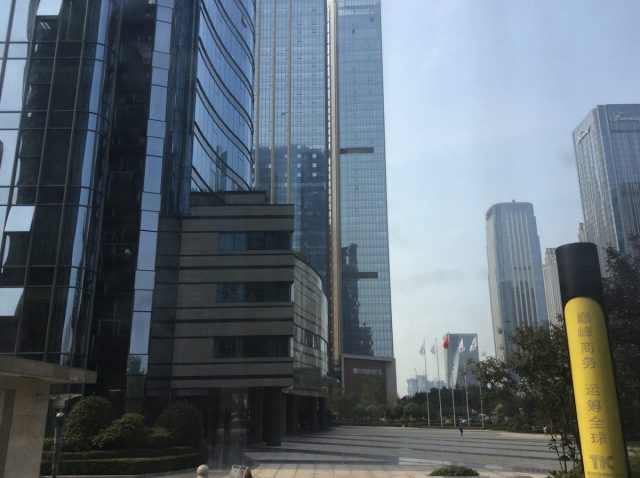CHENGDU, China – With improving China-Philippines relations, a leading Chinese agriculture and energy firm is eyeing the Philippines as its new business destination in Southeast Asian region.
”Actually, we have plans to expand our business in the Philippines especially now that China and Philippines relations is getting better,” Chen Xi, project manager of Development Department of Tongwei Co., Ltd., said in an interview with Philippine News Agency (PNA).
Chen said Tongwei Group had tried the Philippine market for its aquatic, livestock and poultry feeds five years ago “but negotiations did not work out.”
Tongwei boasts more than 170 branch/subsidiary companies and over 20,000 employees distributed all over China and Southeast Asia, including Vietnam and Singapore.
”We have already close cooperation in many countries but we are also seeking more opportunities particularly in South Asia and Southeast Asia,” Hu Rongzhu, vice president of Tongwei Group, told visiting Asian journalists at the new Tongwei headquarters in Chengdu, Sichuan province.
Hu said Tongwei was the world’s largest producer of ‘good quality’ aquatic feeds and one of the major producers of livestock and poultry feeds.
”Our products are very competitive in terms of cost and quality,” Hu told the journalists after showing the company’s products, projects and achievements displayed in an exhibition hall.
When it began in 1983, Tongwei Group engaged only in fish feeds, but three decades of hard work and innovation, he said, have made the company one of world’s best in aquatic feeds production and polycrystalline silicon and solar PV industries.
The company has an annual production capacity of 10 million tons of fodder and has been listed Sichuan’s first listed agricultural company with annual revenue of over RMB 10 billion (USD1.47 billion).
It is also one of China’s listed agricultural companies with largest sales volume in the sectors of agriculture, forestry, animal husbandry and fishery.
For 20 consecutive years, Tongwei’s aquatic feeds has dominated the domestic market with 20-percent share.
”We are endeavoring to build the company into a world-class healthy food supplier which combines improvement, R & D and promotion of breeding technology, food processing, sale, as well as branding and service together,” Hu said.
Photovoltaic enterprise
In the new energy business, Hu said Tongwei is the only domestic comprehensive photovoltaic enterprise covering upstream polysilicon production, solar cell production, and construction of terminal photovoltaic (PV) power station.
In November 2015, Tongwei constructed Phase I of a 5,000-megawatt (MW)crystalline silicon solar project, which turned out to be the world’s largest in terms of highest degree of automation and production capacity per single workshop.
Tongwei has invested an additional RMB5 billion (USD724 million) for the construction of the project’s Phase II and III with total production capacity of 4000 MWs.
In the next 3 to 5 years, Tongwei is expected to achieve a capacity of 1000 MWs in solar energy generation and an annual output value of more than RMB20 billion (USD2.94 billion).
”By then, it will become the world’s largest, most competitive and influential solar batter producer,” Hu said.
Listed among China’s top 100 listed private companies, Tongwei’s brand value hit RMB45 billion (USD6.6 billion)
Tongwei Group Chairman of the Board Liu Hanyuan was given ‘Global New Energy Figure of the Year’ honors in 2013 and ‘Asia-Pacific Economic Leaders’ Award for Social Responsibility’ in 2015.
”Tongwei group preserves in feed and aquaculture business chain extension on its way to the world-class supplier of healthy and safe food and solar PV enterprise and clean energy company,” Hu said.
Many Chinese companies have reportedly expressed interest to invest in the Philippines since President Rodrigo Duterte normalized China-Philippines relations last year.

